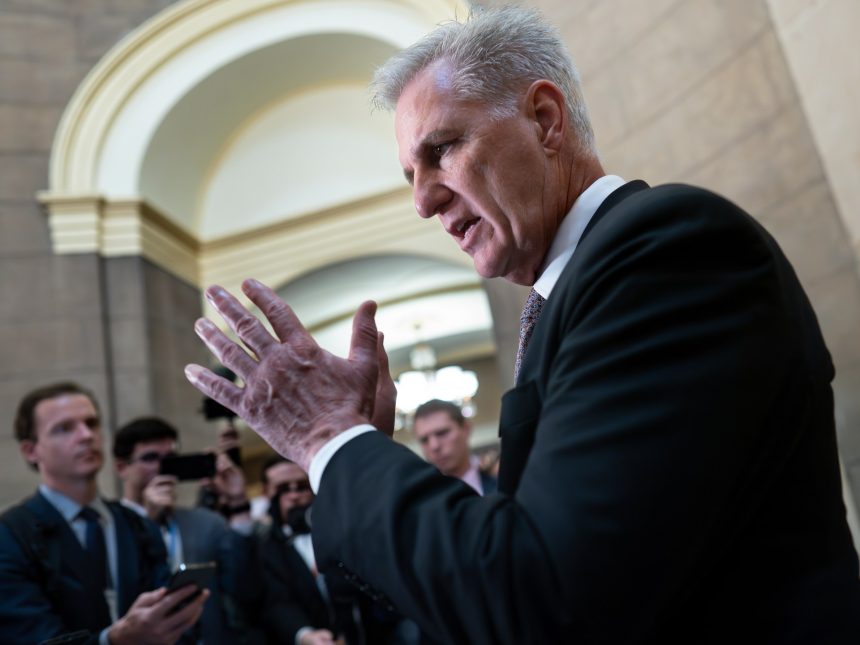EXPLAINER
Hardline Republicans are threatening to oust their own party’s speaker — using a rule McCarthy himself introduced.
It was a moment of victory for United States House of Representatives Speaker Kevin McCarthy that has also left the veteran Republican’s job at risk.
On Saturday, the House approved a McCarthy-brokered funding bill that will keep the US government running until November 17 after weeks of negotiations between Democrats, who are in power, and Republicans, who have demanded spending cuts.
The bill was also passed by the Senate and signed into law by President Joe Biden. But it has left a vocal section of Republicans angry with McCarthy — and baying for political blood.
What’s the tension about?
McCarthy had tried earlier to push through a bill that addressed Republican demands, including 30 percent budget cuts for many agencies, but that fell through after most Democrats opposed it.
With predictions of a government shutdown widespread, McCarthy then manage to stitch together a deal with support from Democrats. His proposal was eventually backed 335-91 in the House with 209 Democrats and 126 Republicans voting for it. Ninety Republicans opposed the move, arguing that the compromise bill gave up on key demands for budget cuts.
In a Sunday post on the social media platform X, formerly known as Twitter, McCarthy said: “I just signed and sent this short-term stop-gap bill to the White House in order to fund our troops, deliver emergency relief, and keep government open while Congress gets back to work through regular order.”
But a small group of hardline Republicans who were calling for spending cuts from federal agencies and changes to border security is upset over McCarthy’s collaboration with Democrats to get the bill passed.
What’s the risk to McCarthy?
Matt Gaetz, a Republican congressman from Florida, is leading calls for McCarthy’s ouster after the speaker’s critics within his own party said they would take action if he worked with the Democrats on the funding bill.
Ironically, McCarthy himself has set the stage for a challenge to his position.
The Republican politician became the 55th speaker of the House, after 15 rounds of voting in January. To get voted in, he made several concessions: one of them was allowing just one member from the House to put forward a motion for the speaker to vacate his post.
So now, it would take only one member of the House — say Gaetz — to introduce a resolution to call for the speaker to vacate his position. Once considered, it needs a simple majority to pass.
The motion could compromise McCarthy’s stature as a Republican leader because he might need to draw on significant support from Democrats in the House to survive such a vote.
Why does this matter?
McCarthy, who was first elected to the House as a representative for California’s 22nd District in 2006, is a veteran of political tumult.
He had also tried to stand for speaker in 2015 but dropped out of the race after controversial comments he made about a government panel set up to investigate the 2012 Benghazi attack in Libya.
Although McCarthy hasn’t publicly endorsed Donald Trump in next year’s presidential elections, he is known to be his staunch supporter.
If he is removed as speaker, it is unclear who might replace him in the politically influential position. Without a speaker, bills cannot be approved and legislation would not be passed, leaving the House of Representatives redundant.
But history is on McCarthy’s side: No speaker has ever been removed through a motion to vacate. Yet.









